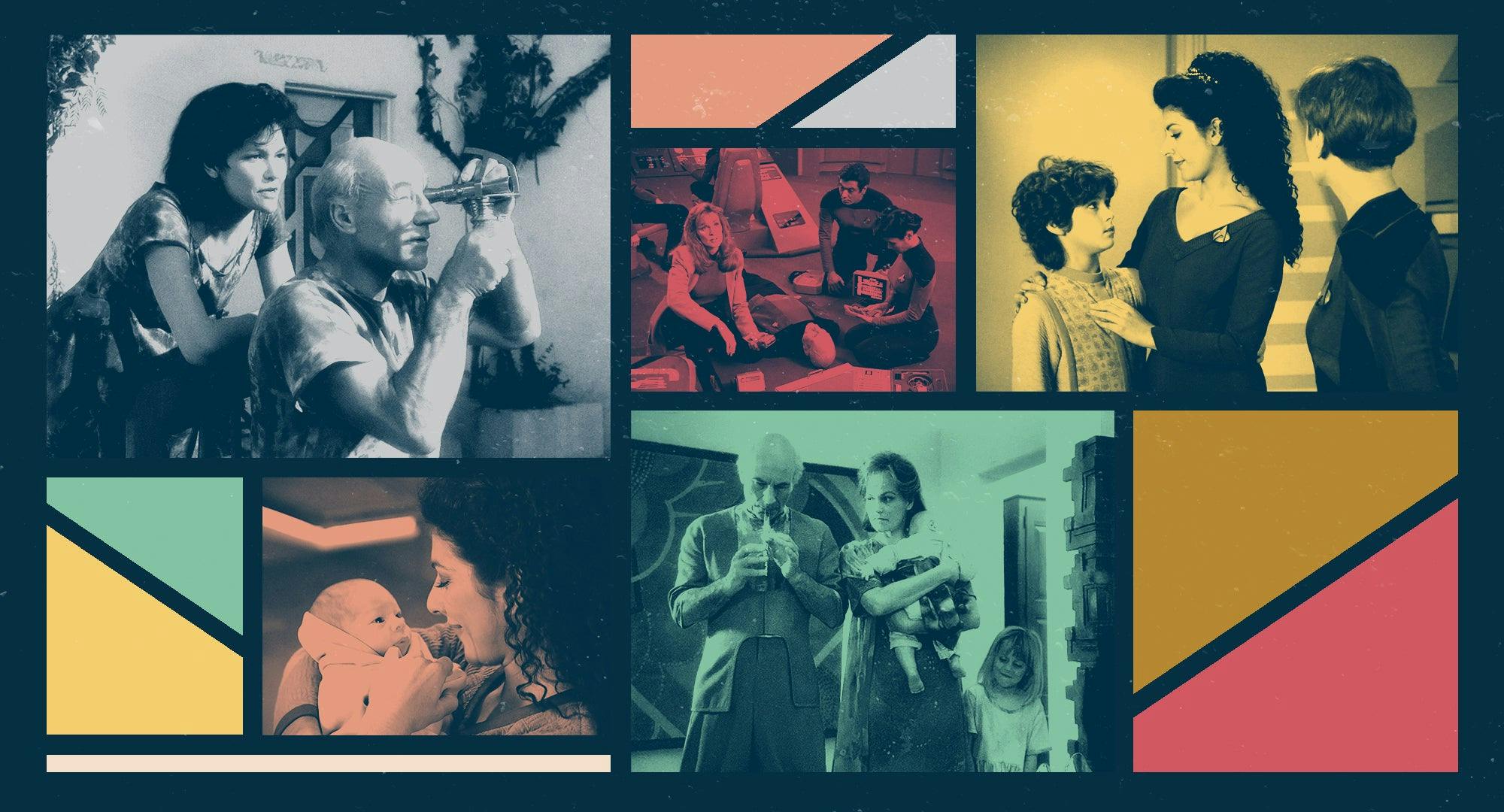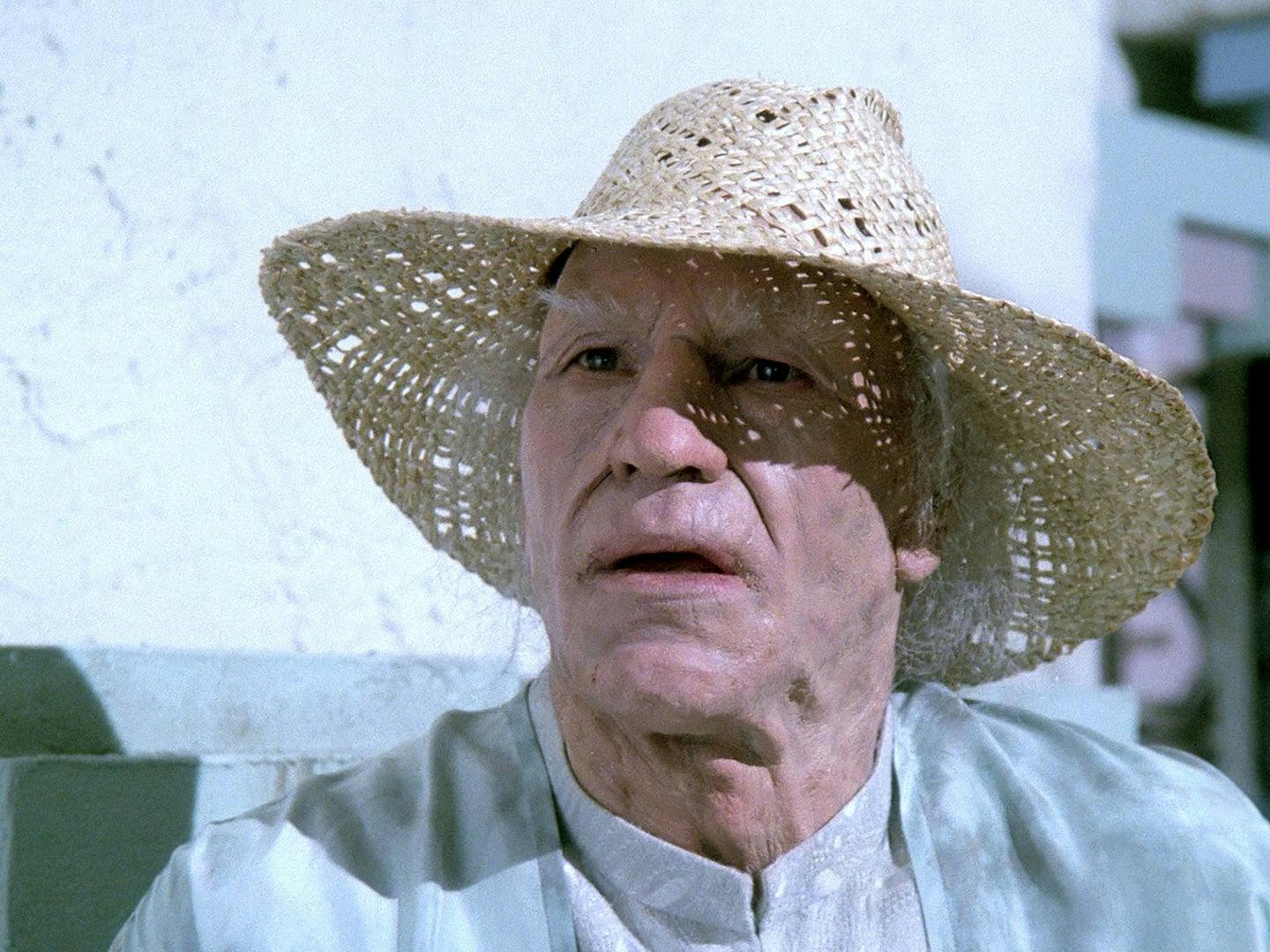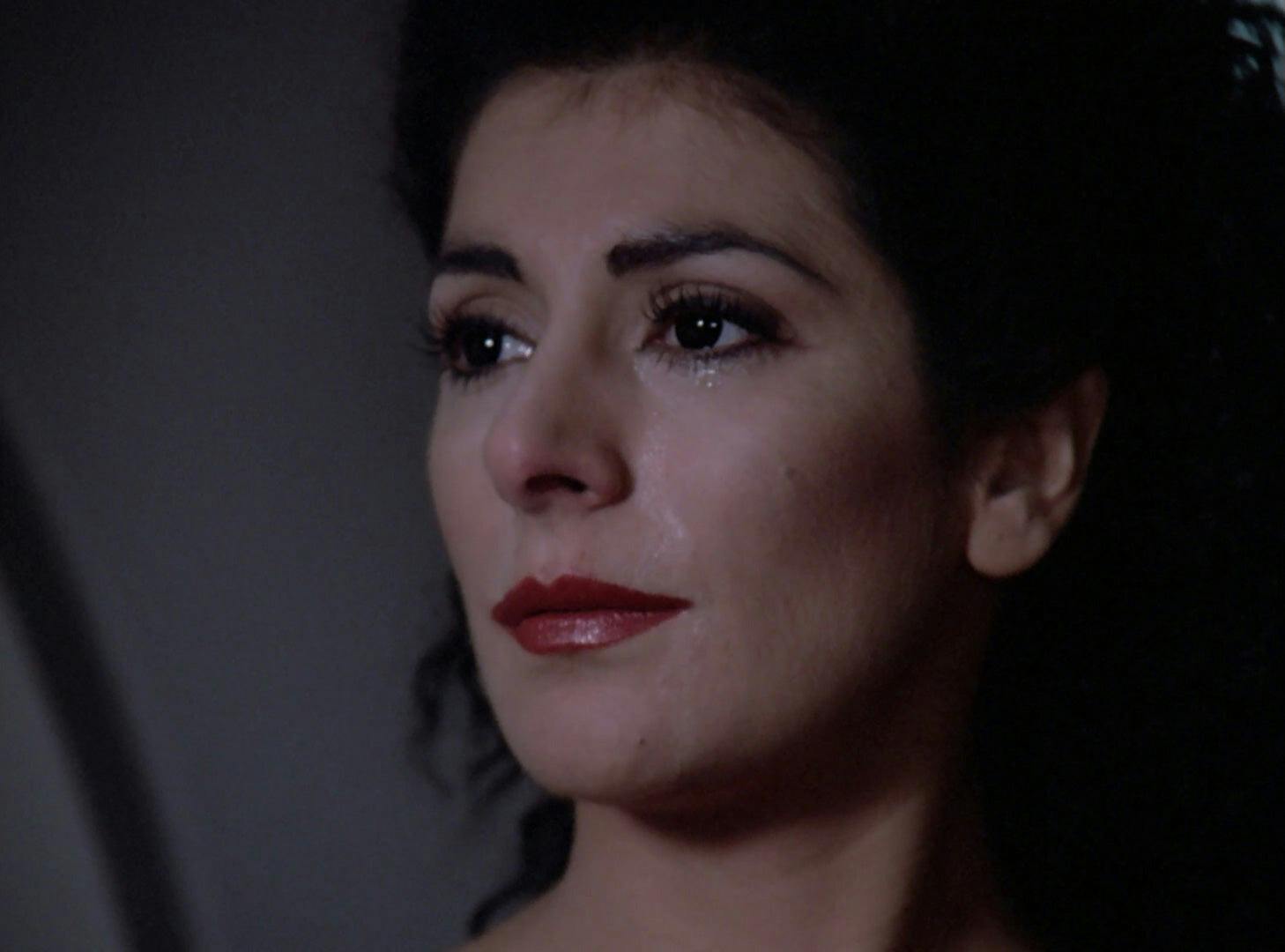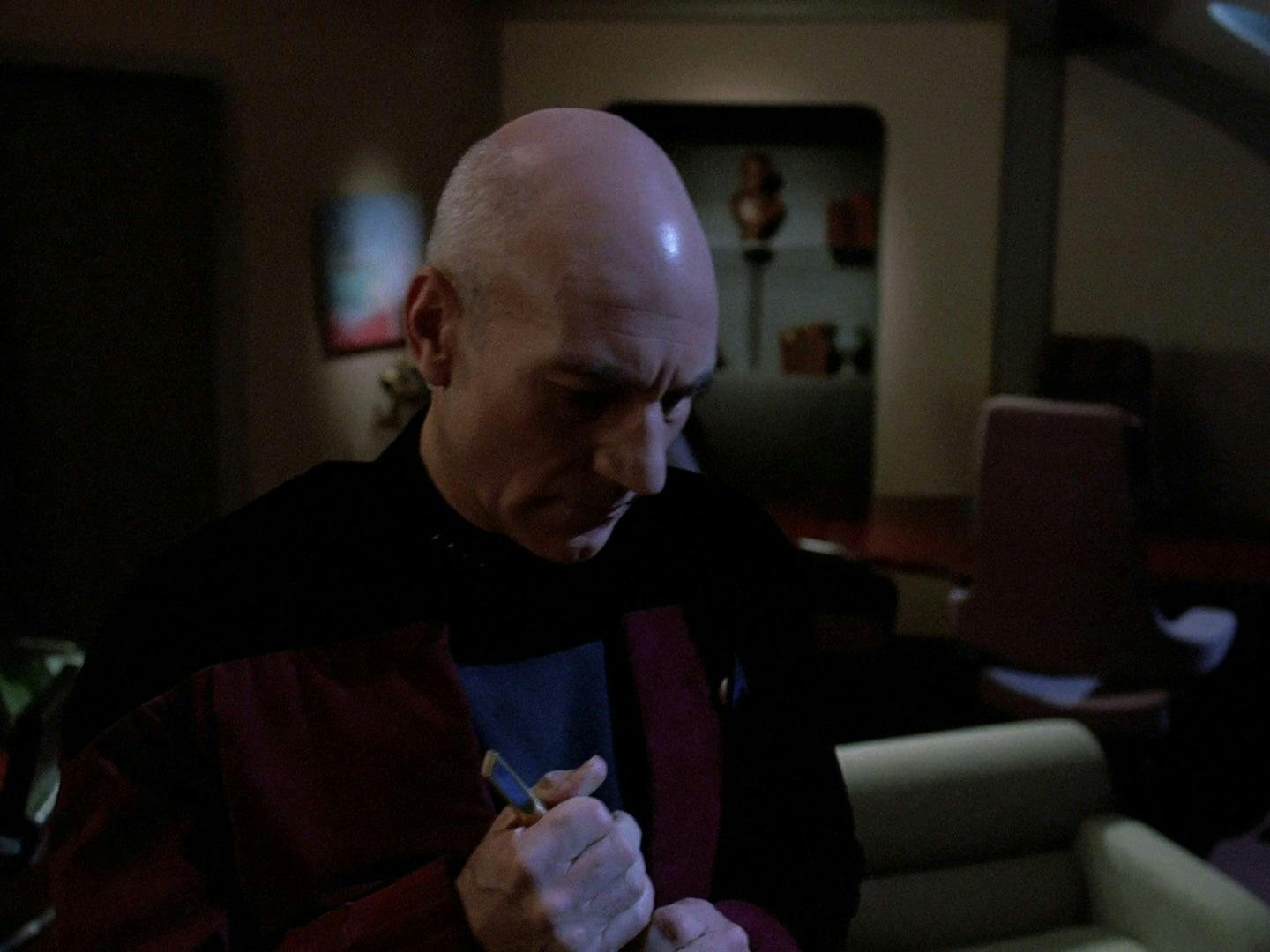Published Jan 18, 2021
What Can Star Trek Teach Us About Empathy in 2021?
Does empathy demand a lived experience?

StarTrek.com
2020 saw the whole world struggling with enormous challenges — from the health impact of the pandemic to the difficulty of examining our society’s racial biases in response to the Black Lives Matter campaign and, especially in my country of England, dealing with the rising tide of transphobia. The pandemic may have put pressure on our societies, revealing the cracks and fissures that were already there, but there is something even more fundamental in some country’s failure to approach these challenges with grace and dignity: the lack of ability to put ourselves in another’s shoes. But if we’re looking for lessons in how to build our empathy for this new year, we are lucky that we can return to Star Trek.
We’ve all read stories of those who didn’t believe in COVID-19, until they or a loved one contracted it. We’ve also heard reports of white spouses in mixed relationships finally realizing the extent of systematic racism, after experiencing it themselves. Parents of kids who have come out as trans are also suddenly thrust into a fight for human rights and dignity. The flipside of these realisations are the politicians questioning if systematic racism is real or journalists asking if anyone knows someone who has had COVID-19, when we will almost definitely pass 90 million cases worldwide by the end of 2021.
Why don’t we believe doctors, survivors and statistics? It seems in this time of crisis, we’ve lost trust in authority and instead only believe our own direct experiences or those of our close contacts. This is a question then of the lived experience of pain — we believe it when we see it. ‘Lived experience’ is personal, direct experience of something, and the knowledge we gain from it. Say a loved one contracts a disease and passes away, or we experience discrimination — this then teaches us to believe that COVID-19 is dangerous, or racism is endemic. But as rational creatures, should we need to see something to believe in it? As a society we will be constantly limited and unable to progress if we can’t trust in data or in testimony from our fellow humans.
Star Trek has always been ahead of the curve in terms of tackling important contemporary ethical questions. In these dark days I keep going back to two episodes from Star Trek: The Next Generation that deal directly with the question of lived experience: “The Inner Light” and “The Child.” Both of these episodes take this concept of lived experience or 'walking a mile in another's shoes' and develop it to intense emotional conclusions.

StarTrek.com
In "The Inner Light," Captain Picard is stunned by a beam from a desolated planet. This episode, written by freelancer Morgan Gendel, won a Hugo Award for dramatic performance, and it’s easy to see why. While the crew panic and try to work out what has happened, we see that Jean-Luc is being compelled to live a lifetime from another's point of view. As he watches the planet’s climate change and his children and grandchildren grow up, we learn that the last act of this civilization was to create a device which would show the unfolding disaster. As ships pass the dead world, one crew member aboard will receive the direct lived experience of watching a beloved planet die. Jean-Luc is returned to the ship physically unharmed, but deeply affected by the grief he has experienced. After all — although the life belonged to someone long dead, he also lived and loved and lost in exactly the same way.
In “The Child,” counselor Deanna Troi becomes pregnant through the work of a powerful and mysterious lifeform, in a clear Madonna-and-child reworking. The pregnancy lasts a few short hours, the birth is painless, and the child is sweet and curious. Unfortunately, the lifeforce has come aboard the Enterprise while the ship is transporting dangerous plague samples. To save the crew, the lifeform must sacrifice itself. After the lifeform has transcended its physical body, it explains to Deanna that they chose to be born aboard the Enterprise to learn what it was like to be human.

StarTrek.com
So is the thesis proposed by these two episodes that the strongest and most impactful experiences come from lived experience? Is this the only way to engender true empathy? Are we doomed to not believe in a deadly plague or systematic racism unless we directly experience the pain for ourselves? While the episodes clearly illustrate how powerful lived experience is, they also reveal another lesson for us. Both of these episodes are very much exploring the power of storytelling, too.
Roger Ebert once wrote that film is a “machine that generates empathy”. Many of us have experienced that sensation of loss of self when watching a piece of media — of feeling for ourselves the fear, the grief, the joy of the character on screen, as if it were our own. Watching BlackKklansman fills me with rage and fear. Reading The Color Purple, I felt physically ill through the first half, unable to put the book down — and then was flooded with relief and joy as the protagonist found happiness. According to a meta-analysis of studies on reading and empathy, reading fiction improves our social cognition. It makes sense that the reaction for many to Black Lives Matter was to find books and movies about the Black experience — reading and watching lists were everywhere in the wake of George Floyd’s murder. It is also no coincidence that when the Nazi’s took power in Germany, they moved quickly to destroy art, films and books that humanised or celebrated the experiences of those they sought to demonise.
The Nazis weren’t the first or last to try and control the way we think and feel by controlling access to culture. In the UK, after our short-lived English Revolution, the reinstated powers burned thousands of books by groups such as the Levellers, a movement who wanted an end to political corruption and to extend voting rights. The hangman was frequently the person who would gather and burn the books. Inscribed in the memorial at the site of one of the Nazi’s most famous book burnings in Berlin are the words of the German Jewish writer Heinrich Heine: “Where they burn books, they will, in the end, burn human beings too."

StarTrek.com
The current alt-right movement is weaponizing this control over culture too — with Twitter threads and Prager-U videos devoted to the idea of declining artistic standards, that bear a strong resemblance to the Nazi ‘Degenerate Art’ exhibition of 1937, that aimed to ridicule non-representative styles of painting. The attacks on various television shows, or the Marvel Cinematic Universe or video games for ‘going woke’ is an attempt to control whose stories are allowed to be told in mainstream culture, and who the viewers should be encouraged to empathise with. Googling ‘Star Trek goes woke’ brings up an astounding plethora of silly YouTube videos and right-wing think pieces. Star Trek, after all, was created by Gene Roddenberry to show a diverse crew — including a Russian crew member at the height of the Cold War. The creation of the character of Lieutenant Uhura meant there was a Black woman on screen, exploring the universe and treated with dignity, during the civil rights movement in America — just a year after the march from Selma to Montgomery and at the same time as Martin Luther King Jr was assassinated. George Takei was imprisoned in an American internment camp during WW2, and his portrayal of a Sulu on the bridge of the Enterprise has been deeply impactful for many. Roddenberry was deliberately building a better world in fiction that we could live up to, and was trying to ensure that it would be open and inclusive of everyone. In short: Star Trek has always been "woke."
In that Hugo award-winning episode, “The Inner Light,” the machine the planet builds to spread their experiences seems to me to be a perfect metaphor for narrative media. A machine that beams us into the life of another, causing us to live and feel the experiences of someone else. That is what great television, film and fiction does. Empathy is the antidote to bigotry, as well as the callous dismissal of lives some deem as less important than the economy or their own comfort. We need as many empathy machines as possible, and I for one am going to go back and rewatch Next Generation to remind me that a better world is achievable.
My First Contact: Kendra James

